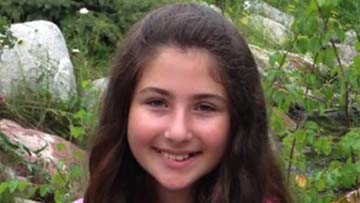On death, loss and the birthday of an angel
When I was a junior in high school, I lost my grandfather to cancer. Poppy was the kindest, most thoughtful and creative man (person) I have ever known. His death left me absolutely devastated. I mourned for a long time and had a hard time eating or even coming out of my room. At 16, it was the first time I had experienced such a loss. My world was crushed, my heart ached and I didn’t feel whole anymore. A few months after his passing, I came across a framed certificate that my grandparents had given me the year before. The certificate stated that a star had been in named in my honor and even had the exact coordinates of the specific star. I remember staring at the celestial map knowing, in my heart, that my Poppy was now living on that exact star. From that day forward, I have often stared into the sky and had conversations with my grandparents (my grandmother, Nanny, joined him years later). It has given me such a sense of comfort to have a tangible place to direct those conversations and thoughts to. I was 16 when I was dealing with this loss, and it took so long for me to come to terms with it.
Zoey Hess, an 11-year-old Houstonian, grappled with a similar loss. Her grandfather, Papa, passed away when she was 9. Zoey was considerably younger than I was, but she struggled with the idea of her Papa “passing away,” just as I had years before. When her mother lit a yirtzheit candle, the Jewish traditional candle lit to honor a loved one who has died, Zoey was deeply bothered that this was such a sad occasion. Instead of thinking of it as her Papa leaving the earth, she urged her family to believe the idea that this wasn’t his death, but rather the birthday of him becoming an angel. This positive spin inspired her to write a book to help others who had been in her shoes, or will be at some point in their lives. Her book, The Birthday of an Angel, chronicles dealing with such a loss through the eyes of a child. While the book is written by a child for other children, it is absolutely something we can all relate to and can all benefit from. After all, as Sandra Cisneros noted in her short story Eleven, there are most certainly days and times when we don’t feel our age:
Like some days you might say something stupid, and that’s the part of you that’s still ten. Or maybe some days you might need to sit on your mama’s lap because you’re scared, and that’s the part of you that’s five. And maybe one day when you’re all grown up maybe you will need to cry like if you’re three, and that’s okay. That’s what I tell Mama when she’s sad and needs to cry. Maybe she’s feeling three.
I recently attended a funeral for a member of my close-knit community. The hole left by this man was immense. I couldn’t help but mourn for the amazing wife he left behind, but I couldn’t tear my eyes away from the many grandchildren who looked around, no doubt searching for answers. Tears streamed down their cheeks as they clung to their parents who had just lost their father, to their grandmother who had just lost her other half, and to each other, who would no longer be able to climb into their grandfather’s lap and receive his warm hugs.
I began to think about the fact that death and dying seem to be such taboo subjects to approach with kids. As a parent, I can see why. I have gone overboard, probably to the detriment of my daughter’s emotional growth, to shield her from normal, everyday stressors that she may encounter. While death is not a normal and everyday stress, if she can’t cope with small disappointments, I fear she won’t be able to deal with them on a larger scale, such as losing a loved one. However, why shelter our children from learning to deal with emotions that they will inevitably have to face? Instead, we should be offering them the tools to cope and the insight to remain positive when faced with such a tragedy. Instead of instilling a sense of loss in their lives, we can assure them that death is isn’t necessarily a loss. It is death that causes angels to be born, and it took a child to be able to put this beautiful outlook into words.
I spent seven years of my life as a Language Arts teacher for 9 and 10-year-olds, and I can’t tell you how much honesty, truth and insight there is to be found in their thoughts and in their writing. And as a writer myself, I have found it to be extremely cathartic to be able to express myself through words. Zoey Hess was able to combine these two into a beautifully-written book on an otherwise depressing situation that we all, unfortunately, will face at some point in our lives. On those days, it is when we feel like crying, as if we are 3, or we manage to say something stupid to someone who is going through a tough time, as if we were 10. In the face of death, comforting words are often elusive. Cards get thrown away, flowers die, trays of food get consumed, but a book – a book with such a special and optimistic message – is something that will warm hearts of any age.


Leave a Comment
You must be logged in to post a comment.